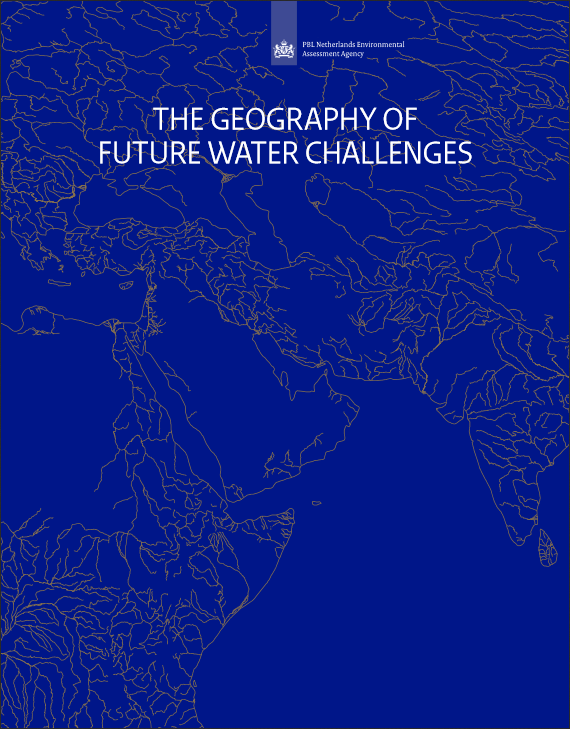Location
2500 GH The Hague
The Dutch United Provinces declared their independence fr
Mission
PBL (Planbureau voor de Leefomgeving) Netherlands Environmental Assessment Agency (previously known as "Milieu- en Natuur planbureau") is the national institute for strategic policy analysis in the fields of the environment, nature and spatial planning.
We contribute to improving the quality of political and administrative decision-making by conducting outlook studies, analyses and evaluations in which an integrated approach is considered paramount. Policy relevance is the prime concern in all of our studies. We conduct solicited and unsolicited research that is independent and scientifically sound.
Independent
PBL is an autonomous research institute in the fields of the environment, nature and spatial planning. It is part of the Dutch Government organisation; more specifically, the Ministry of Infrastructure. Public Works and Water Management.
Other government departments may also ask PBL to conduct research into issues related to the environment, nature and spatial planning – in particular the Ministry of Economic Affairs and Climate Policy, the Ministry of the Interior and Kingdom Relations, the Ministry of Agriculture, Nature and Food Quality and the Ministry of Foreign Affairs.
The independence of PBL and its partner agencies CPB Netherlands Bureau for Economic Policy Analysis and the Netherlands Institute for Social Research (SCP) is safeguarded in the Protocol for the Policy Assessment Agencies (Aanwijzingen voor de Planbureaus), Staatscourant (government gazette) 3200, 21 February 2012.
Professor Hans Mommaas is the Director-General of PBL Netherlands Environmental Assessment Agency.
Core tasks
The core tasks of PBL are:
- to investigate and document current environmental, ecological and spatial quality and to evaluate policy;
- to explore future social trends that influence environmental, ecological and spatial quality and to evaluate possible policy options;
- to identify social issues of importance to environmental, ecological and spatial quality and raise them for discussion;
- to identify possible strategic options for achieving government objectives in the fields of the environment, nature and spatial planning.
History
PBL Netherlands Environmental Assessment Agency was established in 2008 when the Netherlands Institute for Spatial Research (RPB) merged with the Netherlands Environmental Assessment Agency (MNP). The merger came about as part of the Government Reform (Vernieuwing van de Rijksdienst) programme, which resulted in the activities of RPB and MNP being transferred to PBL.
Members:
Resources
Displaying 1 - 5 of 7Goals and Commitments for the Restoration Decade. A global overview of countries’ restoration commitments under the Rio Conventions and other pledges
The multiple benefits of restoration, from local to global scales, are reflected in the array of global and regional goals for restoration.
The geography of future water challenges
This new report by the PBL Netherlands Environmental Assessment Agency in collaboration with the Clingendael Institute and other Dutch research institutes points to pressure on security and migration arising from too little, too much or polluted water. Many integrated solutions are possible to divert this trend towards a sustainable and climate-resilient world.
Exploring future changes in land use and land condition and the impacts on food, water, climate change and biodiversity: Scenarios for the UNCCD Global Land Outlook
The pressure on land is growing in many regions of the world, due to the increasing demand for arable crops, meat and dairy products, bio-energy and timber, and is exacerbated by land degradation and climate change. This policy report provides scenario projections for the UNCCD Global Land Outlook, exploring future changes to the use and condition of land and the resulting impacts on food, water, climate change and biodiversity.
KELK 2003 - landschapsmodule; kennismodel voor de bepaling van effecten van ruimtegebruiksveranderingen op de landschapskwaliteit
KELK (een methode van het Natuurplanbureau) modelleert geen processen, maar gebruikt expertkennis (vuistregels) en metamodellen. Klek is bedoeld voor quick scan toepassingen op het terrein van bestemming en inrichting van de groene ruimte. Daarbij kunnen de kwalificaties meegegeven worden "herkenbaarheid verleden" "belevingswaarde" en "recreatieve gebruikswaarde"
Groene ruimte in de Randstad: een evaluatie van het rijksbeleid voor bufferzones en de Randstadgroenstructuur; achtergronddocument bij Natuurbalans 2004
ertoe geleid dat in de directe omgeving van steden grote open gebieden onbebouwd zijn gebleven. Bovendien zijn er grote groene recreatiegebieden aangelegd die zeer in trek zijn bij omwonenden. Planologische onduidelijkheid, onvoldoende bestuurlijke regie en, daarmee samenhangend, ontwikkelingen op de grondmarkt hebben ertoe geleid dat de aanleg van groengebieden de afgelopen jaren stagneert. Recentelijk is het rijksbeleid overgedragen aan provincies. Deze hebben echter nog moeite om de integrale ontwikkeling van grote groengebieden in samenhang met rood te regisseren.





